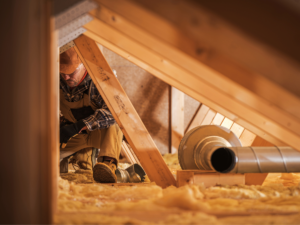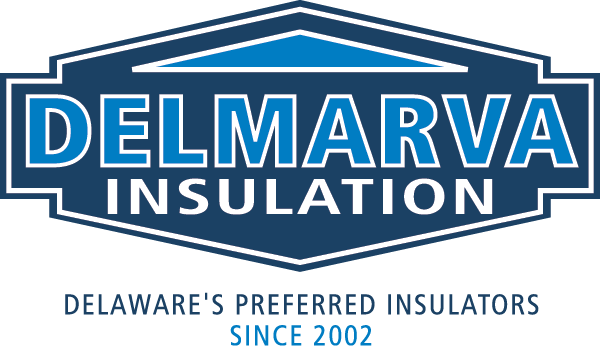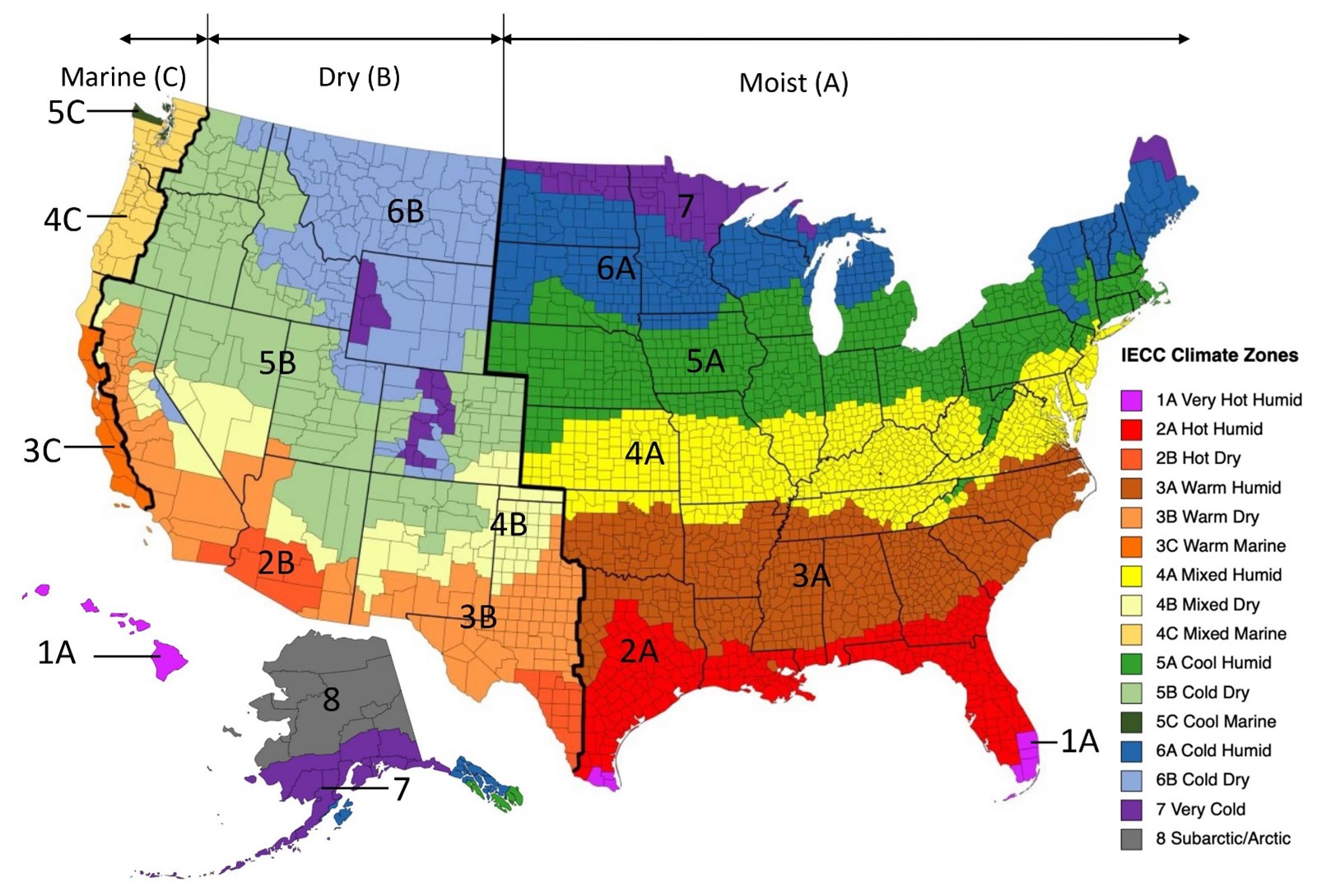Delaware’s climate brings temperature swings and high moisture levels from the Chesapeake Bay and Atlantic Ocean. This makes properly insulating your home to handle the heat, cold, and humidity crucial for maintaining a cozy and comfortable living space all year long. But wrapping your head around the intricacies of insulation can be daunting. Take a deep breath because we’re here to help make sense of insulation.
Discovering the Best Insulation Materials for Your Home Comfort
 Insulation isn’t a one-stop-shop. There’s a wide variety of highly effective insulation materials to choose from and the list continues to grow. Each material offers its own set of benefits and considerations. Here’s a brief rundown of some popular insulation choices offered today:
Insulation isn’t a one-stop-shop. There’s a wide variety of highly effective insulation materials to choose from and the list continues to grow. Each material offers its own set of benefits and considerations. Here’s a brief rundown of some popular insulation choices offered today:
- Spray foam insulation: This insulation expands when installed to completely fill a cavity or space. It’s the only insulation that air seals and insulates in one step to maximize your energy savings and minimize air leakage.
- Fiberglass insulation: This staple for wall insulation is made of recycled glass and available in batt or loose fill types. It’s non-corrosive, moisture resistant, and cost-effective but requires additional air sealing to maximize its effectiveness.
- Mineral wool: Made of natural materials, it helps to slow the spread of fire and is a preferred product for commercial insulation projects. It’s also environmentally friendly and offers high thermal performance.
- Foam board: This insulation is a lightweight rigid polyurethane or polystyrene insulation product that provides added moisture control benefits, although it can be more expensive.
Key Insulation Properties to Unveil the Power of Insulation
When considering the right insulation for your home, look at these key properties for combating Delaware’s ever-changing climate:
- R-value and thickness serve as the frontline defenders against heat flow. In our state where temperature swings are the norm, ensuring your insulation is up to snuff in this department is vital.
- Air sealing ability thwarts conditioned air from slipping through the cracks. Air sealing closes all the gaps and cracks in your home to keep warm air in during winter weather and hot air out in the summer. Spray foam is the only insulation that air seals and insulates together.
- Permeability balances the delicate dance of moisture control. By allowing water vapor transmission, it prevents the buildup of condensation, safeguarding your home against mold and structural damage.
Understanding and optimizing these key properties fortifies your home for any weather thrown its way.
Tailoring Insulation Solutions for Every Space
 As you outfit your Delaware home with insulation, each space demands a tailored solution. What works best for your attic may not be ideal for your exterior walls.
As you outfit your Delaware home with insulation, each space demands a tailored solution. What works best for your attic may not be ideal for your exterior walls.
Let’s start at the top with attic insulation. Loose fill fiberglass or spray foam are ideal choices to effectively fill every nook and cranny for ultimate efficiency. Spray foam adds the extra benefit of air sealing to effectively insulate and air seal in one step.
Moving down to the walls, fiberglass batts with poly vapor barriers are an excellent choice, warding off moisture and maintaining a cozy interior. Adding insulation to existing walls? Dense packing walls with loose fill fiberglass is the way to go.
And when you venture below ground into your basement and crawl space, closed-cell spray foam is your best choice, putting an end to moisture’s unwelcome intrusion. Foam board is another option for insulating box sills.
Don’t hesitate to contact an insulation specialist for recommendations on the best insulation for each part of your home.
Navigating Delaware’s Climate: Conquering Cold Snaps and Humidity Hurdles
You can’t overlook Delaware’s climate when choosing insulation. Our cold and humid conditions require insulation strategies that address both temperature and moisture control. Winter brings the risk of attic condensation, a silent threat that can lead to mold growth and structural damage if left unchecked. Meanwhile, moisture issues lurking within your walls can create a breeding ground for problems like rot and decay. By recognizing and addressing these climate considerations head-on, you can fortify your home against the elements, ensuring a cozy and durable living environment for you and your family.
Ultimately, your climate zone and home’s structure will determine the amount of insulation you’ll need to adequately insulate your home. Delaware’s crisp climate places it in climate zones 4 as the image below shows. Each climate zone requires specific R-values of insulation to maximize a home’s energy efficiency. R-value reflects an insulation’s ability to resist heat flow so regardless of what type of insulation you choose, the recommended R-values need to be met.
Visit “Recommended Home Insulation R-values” from Energy Star to read about the specific R-value recommendations for Delaware’s climate zones.
The Art of Professional Installation
Proper installation is vital to guaranteeing your insulation’s effectiveness. When you entrust the job to an insulation professional, you’re taking advantage of the meticulous craftsmanship of a professional installation team. Their expertise ensures that the job is done right, and every part of your home is insulated and air sealed to meet exact thickness and R-value recommendations and leave no space for cold air to sneak in. A professional can also seamlessly integrate other sealing techniques like caulking and can foam insulation, reinforcing your home’s defenses against drafts and moisture infiltration. This comprehensive approach not only maximizes your home’s energy efficiency but also prolongs the life of your heating and air conditioning systems, ensuring the comfort of your home.
Sealing the Deal on Comfort and Savings: Your Roadmap to a Well-Insulated Home
As spring arrives, it’s a good time for you to consider your insulation needs as part of your spring home maintenance checklist. Properly insulating your home not only improves comfort but also prolongs the life of your HVAC systems and water heater, leading to lower energy bills and enhanced energy efficiency. By investing in insulation that addresses Delaware’s unique climate challenges, you can create a more comfortable and efficient living space year-round. Don’t forget to also clean gutters, seal doors and windows, and replace HVAC filters as part of your seasonal home maintenance routine.
To determine the proper type of insulation best suited to your home’s needs, the experienced insulation team at Delmarva Insulation is here to help. We’ll review your home’s structure and provide you with the best insulation solutions for your home. We offer unparalleled products and services to our local communities in Delaware, southern New Jersey, and Maryland’s Eastern Shore. Contact us today to learn more about our insulation solutions for your home.



